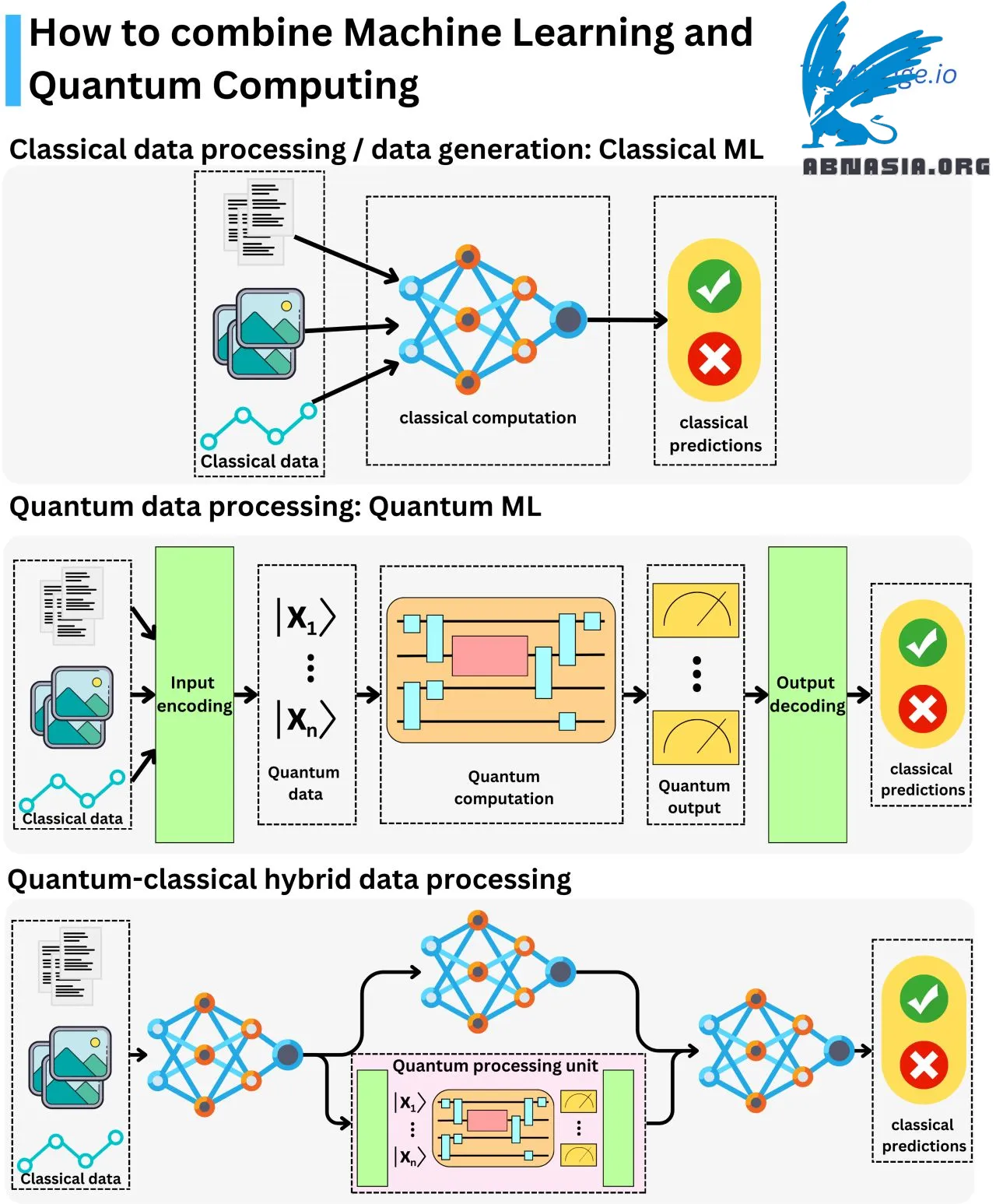- Published on
Combine Machine Learning and Quantum Computing
- Authors

- Name
- AbnAsia.org
- @steven_n_t
Is Quantum Machine Learning useful?

Is Quantum Machine Learning useful? When we think about this question, we tend to wonder if quantum computing could accelerate our known ML algorithms. But that could be the wrong way to go about it. A quantum processing unit is a different type of hardware with different computation principles, and as such, it is a great candidate to develop new ML algorithms with purely quantum principles.
Quantum ML can actually mean multiple things. There are 2 components to ML: data generation and the data processing device, and each component could be quantum or classical:
If both the data generation process and the data processing device are classical, that would be typical Machine Learning as we know it.
Typically, when people think about QML, they think of the data generation process being classical and the data processing being done on a quantum computer. The data could be text, images, or time series, and we need a quantum-classical interface to convert that data into quantum data. The quantum computer can only process quantum data, and a quantum algorithm would generate outputs that need to be converted into classical data. Converting the data back and forth requires at least linear time complexity in the size of the data, preventing any exponential speed of learning tasks. Many people doubt this process will ever be beneficial.
One interesting avenue for QML is if the data generation is intrinsically quantic. For example, in the Physics, Chemistry, or Biology departments, researchers deal with quantum "data" on a daily basis. Electrons in your CPU or medication molecules abide by quantum mechanical laws. A typical way to study those phenomena is to build numerical simulations using synthetic classical data simulating quantum particles, with those simulations being run on a classical computer. This is very slow, and we can simulate a limited number of particles at once. But if we could use quantum data to simulate quantum particles, we could run quantum ML algorithms directly on those data. There is evidence that this would lead to a quantum speed-up of the process. Quantum ML could lead to huge scientific leaps in the near future!
A few hybrid quantum-classical architectures have been proposed where models are spread across classical and quantum processing units. This allows the processing of quantum data with a computer but benefits from the advantage of well-understood computations on classical computers. For example, you can use classical computers as outer loop optimizers for quantum neural networks.
Author
AiUTOMATING PEOPLE, ABN ASIA was founded by people with deep roots in academia, with work experience in the US, Holland, Hungary, Japan, South Korea, Singapore, and Vietnam. ABN Asia is where academia and technology meet opportunity. With our cutting-edge solutions and competent software development services, we're helping businesses level up and take on the global scene. Our commitment: Faster. Better. More reliable. In most cases: Cheaper as well.
Feel free to reach out to us whenever you require IT services, digital consulting, off-the-shelf software solutions, or if you'd like to send us requests for proposals (RFPs). You can contact us at [email protected]. We're ready to assist you with all your technology needs.

© ABN ASIA